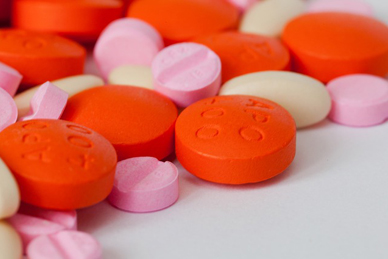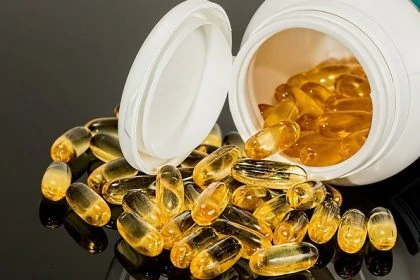A supplementary protection certificate cannot be granted for a medicinal product which is protected by the basic patent and placed on the market – even if the product is a new formulation of an “old” active substance. The Advocate General recommends it in an important SPC preliminary ruling in the Abraxis and Abraxan cases.
Abraxan is new formulation based on “old” active ingredient
 The focus of the dispute is the supplementary protection certificate (SPC) for the cancer drug Abraxan. Abraxis Bioscience LLC (“Abraxis”) applied for a SPC for a combination of substances containing the active substance paclitaxel in the form of nanoparticles bound to albumin. Part of the international cancer drug paclitaxel is coated with the protein albumin. Abraxis calls this combination of substances “nab-paclitaxel” and markets it under the name Abraxan. Nab-Paclitaxel is protected by the European Patent (UK) No. EP 0 961 612.
The focus of the dispute is the supplementary protection certificate (SPC) for the cancer drug Abraxan. Abraxis Bioscience LLC (“Abraxis”) applied for a SPC for a combination of substances containing the active substance paclitaxel in the form of nanoparticles bound to albumin. Part of the international cancer drug paclitaxel is coated with the protein albumin. Abraxis calls this combination of substances “nab-paclitaxel” and markets it under the name Abraxan. Nab-Paclitaxel is protected by the European Patent (UK) No. EP 0 961 612.
Abraxis applied for an SPC based on the basic patent. However, the desired SPC application for Abraxan was rejected in August 2016 on the grounds that the active substance was simply “paclitaxel” and nab-paclitaxel was therefore a new formulation of paclitaxel. The condition of Article 3(d) of Regulation No 469/2009 is not fulfilled as this authorisation is not the first authorisation for paclitaxel.
Abraxis lodged an opposition and relied on the judgment to the contrary in the Neurim case. The SPC granted in Neurim expired in April 2017, but questions about its scope are now again on the table in today’s preliminary ruling. In addition, Abraxis pointed out that SPCs for Nab paclitaxel were granted in nine Member States (Denmark, Greece, Spain, France, Italy, Luxembourg, Austria, Portugal and Finland) and rejected in two Member States (Sweden and the United Kingdom), a very inconsistent result of SPC applications for Abraxis throughout Europe.
The High Court of Justice (England & Wales), Chancery Division (Patents Court), United Kingdom, therefore requested the Court of Justice to interpret Article 3(d) of Regulation (EC) No 469/2009 concerning the supplementary protection certificate for medicinal products. The interpretation of this question clarifies the scope of new innovations eligible for SPC protection.
Opinion interprets SPC protection for formulations restrictively
In his decision today, the Advocate General confirms in his Opinion the rejection of the SPC requested by Abraxis. If the marketing authorisation on which the application for an SPC is based is not the first marketing authorisation for the active substance or combination of active substances concerned as a medicinal product, no SPC can be granted. That is also the case in a situation such as that at issue in the main proceedings, where the marketing authorisation applied is the first to include the formulation protected by the basic patent on which the application for a supplementary protection certificate under Article 3(a) of that regulation is based.
The Advocate General takes the view that the Court’s restrictive interpretation of the term ‘product’ within the meaning of Article 1(b) of that regulation in its settled case-law cannot be circumvented by a broad interpretation of the term ‘initial authorisation to place the product on the market as a medicinal product’ within the meaning of Article 3(d) of that regulation. If the Court does not take that view, the Advocate General announces that he intends to consider limiting the application of the scope of protection of the basic patent examination to certain situations.
SPC case law
This is the ECJ’s second important SPC ruling on the cancer drug paclitaxel within a few weeks. It was not until the end of October that the ECJ ruled in the Boston Scientific case that a supplementary protection certificate could only protect a product used as a drug. However, SPCs for medical devices are not permitted, not even if a component of the medical device complies with pharmaceutical standards.
Today’s preliminary ruling complements the SPC case law, which the ECJ ruled in July 2018 in the Teva v. Gilead case. This case also dealt with the interpretation of the SPC Regulation (Regulation EC 469/2009). A product consisting of several active substances with combined action is protected “by a valid basic patent” within the meaning of this provision, even if the combination of active substances of which this product consists is not expressly mentioned in the claims of the basic patent, but these claims necessarily and specifically refer to this combination. Each active ingredient must be specifically and precisely identifiable in the wording of the patent claims on the priority date of the patent. This was the verdict in the Teva Gilead case ( ECJ verdict in SPC dispute over Gileads AIDS blockbuster ).
Conclusion
If the ECJ follows the Advocate General’s recommendation, the possibilities for formulating SPCs will remain limited. A SPC ruling by the Federal Patent Court this year is therefore particularly interesting, in which it ruled positively on the granting of a supplementary protection certificate for an active ingredient composition protected by a formulation patent. In this case, however, the adjuvant as carrier for the inventive step and thus the granting of the basic patent was decisive; a synergistic effect of the active substance combination was not claimed ( SPC grant for hexavalent vaccine – on a formulation patent ).
Update: final judgement of ECJ, march 2019
Do you need support in patent protection for pharmaceutical or chemical products or processes?
We would be pleased to support you with the necessary research and correct registration of your trademark. Please take your chance and contact us.
Our lawyers are experienced in trademark and patent law, national and international law.
Sources:
C:2018:1020 Abraxis
Picture:








Leave a Reply